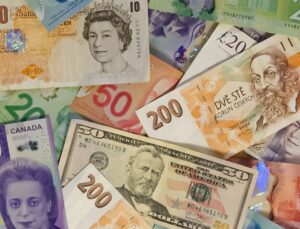Forex Trading Taxation in Australia: Everything You Need to Know
Forex trading has become increasingly popular in Australia, with a growing number of individuals and businesses engaging in this global marketplace. However, like any other form of financial investment, forex trading is subject to taxation. Understanding the tax rules and regulations is crucial for traders to ensure compliance and avoid any potential penalties or legal issues. In this article, we will explore everything you need to know about forex trading taxation in Australia.
Taxation of Forex Trading Profits
In Australia, forex trading profits are generally considered taxable income. The Australian Taxation Office (ATO) treats forex trading as a business, regardless of whether it is conducted as a full-time profession or a part-time activity. This means that any profits derived from forex trading are subject to income tax.
As a forex trader, you are required to keep detailed records of all your trading activities, including profits, losses, and expenses. These records will be used to calculate your taxable income at the end of the financial year. It is important to note that the ATO requires traders to report their forex trading profits in Australian dollars, regardless of the currency pairs traded.
Tax Deductions and Expenses
One advantage of treating forex trading as a business is the ability to claim tax deductions for certain expenses incurred during your trading activities. These deductions can help reduce your taxable income and ultimately lower your tax liability. Some common deductible expenses for forex traders include:
1. Trading-related fees and commissions: This includes brokerage fees, platform fees, and any other costs associated with executing trades.
2. Educational and training expenses: If you have attended forex trading courses or purchased educational materials to improve your trading skills, you may be able to claim these expenses as deductions.
3. Internet and computer expenses: As a forex trader, you heavily rely on computer equipment and internet access. You can claim a portion of these expenses as deductions, reflecting the percentage of time you use them for trading purposes.
4. Subscription fees: If you subscribe to forex trading signal services, news platforms, or market analysis tools, you may be eligible to claim these expenses as deductions.
5. Home office expenses: If you have a dedicated space in your home used exclusively for forex trading, you can claim a portion of your rent or mortgage interest, as well as utility bills, as home office expenses.
It is important to keep accurate records and receipts for all your deductible expenses to substantiate your claims in case of an audit by the ATO.
Tax Treatment for Forex Trading Losses
Just as profits are taxable, forex trading losses can also be used to offset your overall taxable income. If you incur losses from forex trading, you can deduct those losses from other sources of income, such as salary or rental income, to reduce your tax liability. This is known as a capital loss, and it can be carried forward to future years if it exceeds your current year’s income.
However, it is worth noting that the ATO imposes certain rules and limitations on offsetting losses. For example, if you have non-commercial losses, meaning your forex trading activities are not carried out in a business-like manner, you may not be able to offset those losses against other income.
Taxation of Forex Trading as a Hobby
In some cases, the ATO may consider forex trading as a hobby rather than a business. This typically applies to individuals who engage in sporadic or occasional trading activities without a consistent profit motive. If your forex trading is classified as a hobby, any profits you make may be considered assessable income. However, you will not be able to claim any deductions for trading-related expenses.
To determine whether your forex trading is considered a hobby or a business, the ATO will look at various factors, including the frequency and duration of your trading activities, your level of expertise, and your intention to make a profit. If you are unsure about the classification of your trading activities, it is advisable to seek professional advice from a tax accountant or financial advisor.
Tax Reporting and Compliance
Forex traders in Australia are required to file an annual tax return, reporting their trading activities and related income. The tax return should include details of all profits, losses, and deductible expenses. It is essential to accurately report your forex trading income and expenses to avoid any potential penalties or legal consequences.
To ensure compliance with tax regulations, it is recommended to keep thorough and organized records of all your trading activities. This includes trade confirmations, bank statements, receipts, and any other relevant documents. By maintaining proper records, you can easily calculate your taxable income and provide supporting evidence if requested by the ATO.
Conclusion
Forex trading taxation in Australia is a complex subject that requires careful consideration and adherence to tax regulations. As a forex trader, understanding your tax obligations, deductible expenses, and reporting requirements is essential to avoid penalties and ensure compliance. Seeking professional tax advice from a qualified accountant or financial advisor can provide valuable guidance tailored to your specific trading situation. By staying informed and proactive, you can navigate the tax landscape and optimize your financial outcomes as a forex trader in Australia.






